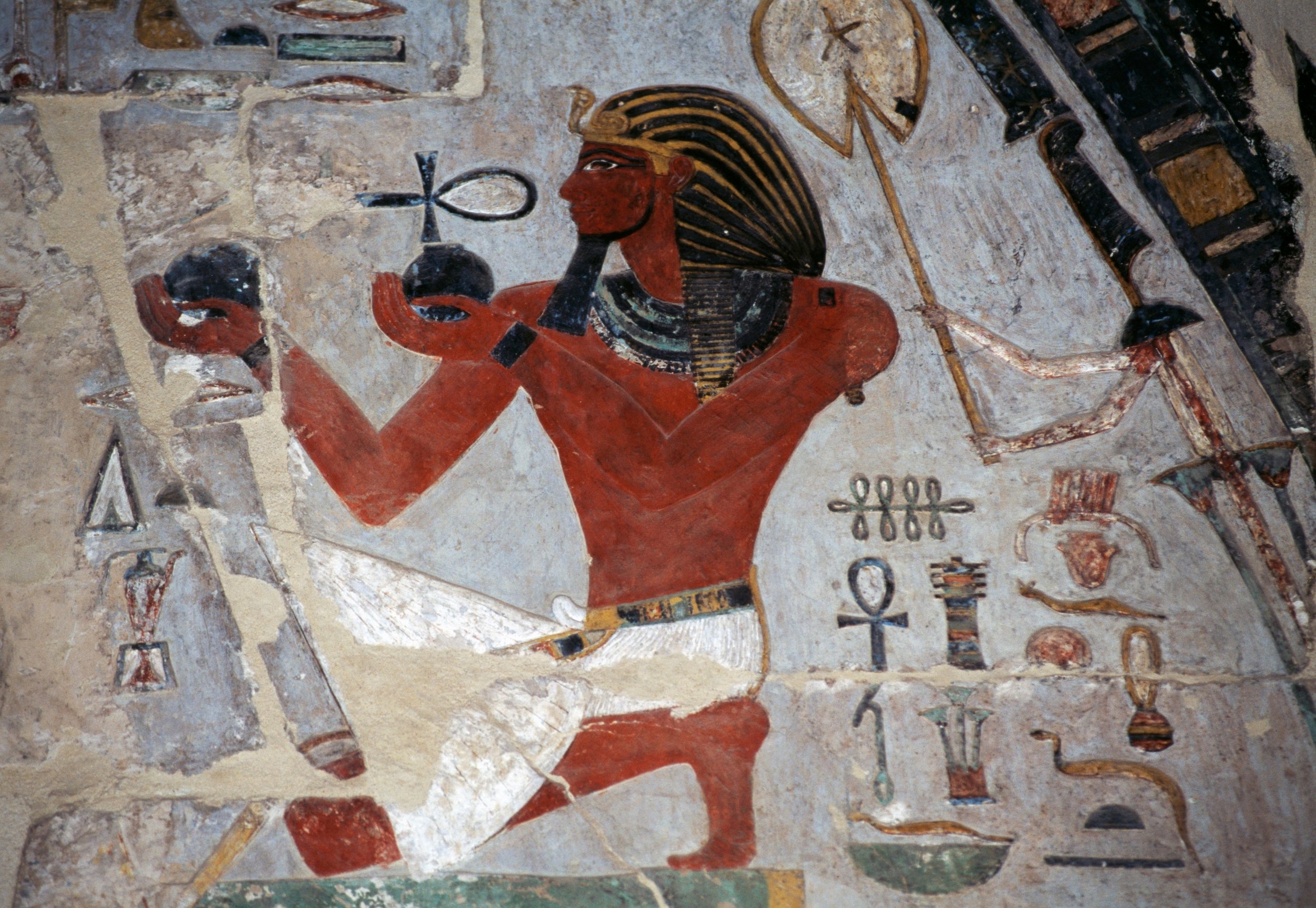
Archaeologists digging in one of the oldest cities in Egypt have discovered evidence that sheds new light on the life of the ancient Egyptian queen Merneith, who ruled during the 1st Dynasty.
The excavation of a tomb in the Umm al-Qaab area in Abydos found an inscription on a “stone vessel” that provides new historical information about Merneith’s reign, during which she held “a great position” and was responsible for the central government offices, said Christiana Köhler, who led the dig.
“It has been speculated that Merneith may have been the first female Pharaoh in Ancient Egypt,” Köhler said in a news release, “but her true identity remains a mystery,”
A fragment of a stone vessel recently found in the tomb of Queen Merneith. It has an incised inscription with her name on the right and the mention of the royal treasury on the left. Photo courtesy of EC Köhler, M Minotti.
Köhler specified that Merneith, also known as Meret-Neith, may have been in charge of the treasury among other government offices, supporting the idea of her historical significance. She is the only 1st-Dynasty woman whose tomb has been uncovered in Abydos so far.
“Considering that these are the remains of people’s lives and actions from 5,000 years ago, we are stunned every day at the amazing detail we encounter during our investigations, including the perfectly preserved grape seeds, craftwork and even footprints in the mud,” Köhler said over email.
The wine jars are seen during the excavation of Merneith’s tomb. Photo courtesy of Egypt’s Ministry of Tourism and Archaeology
Egypt’s Tourism Ministry highlighted hundreds of 5,000-year-old wine jars found in the tomb in the Umm al-Qaab area in Abydos, one of the oldest cities in Egypt located about 354 miles south of Cairo. Photo courtesy of Egypt’s Ministry of Tourism and Archaeology
Discoveries made in the dig also “challenge the long-held belief in human sacrifice,” Köhler added in the news release.
Next to Merneith’s burial site, archaeologists found a group of 41 tombs for her courtiers and servants, indicating these chambers were built during different periods of time.
“This observation, together with other evidence, radically challenges the oft-proposed, but unproven idea of ritual human sacrifice in the 1st Dynasty,” Köhler said.
The news release highlighted the discovery of hundreds of 5,000-year-old wine jars that had never been opened. The archaeological team—hailing from Egypt, Germany and Austria—found the remains of wine inside.
Mustafa Waziri, Secretary General of Egypt’s Supreme Council of Antiquities, said in a statement that the discovered jars are large in size and “in a good condition of preservation.”
“Some of them are very well preserved with their jar stoppers still intact,” Köhler said.
More Trending Stories:
Four ‘Excellently Preserved’ Ancient Roman Swords Have Been Found in the Judean Desert